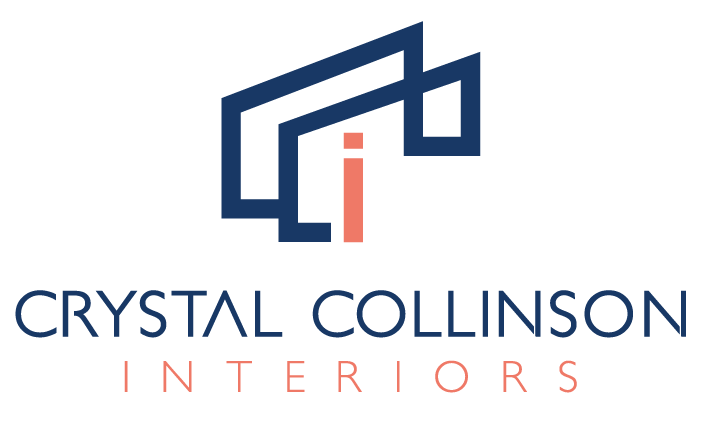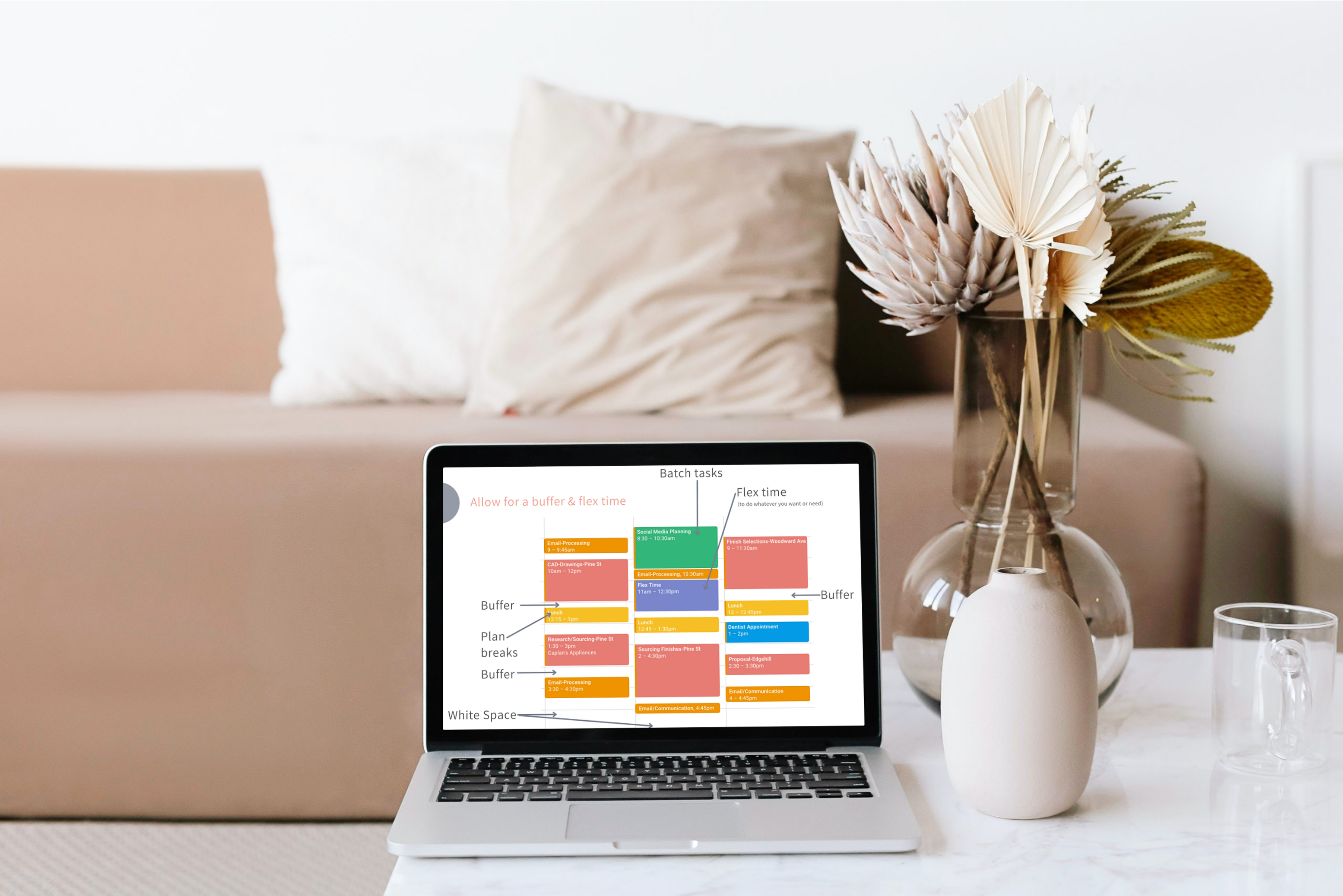If you’re like most interior design professionals, you’ve most likely been hit by the tsunami of project opportunities. We’re living in some unusual times. After making it through the last two years and learning to live a “new normal,” the interior design and construction industry seemed to face increased demands that nobody anticipated. Not only did the workload increase immensely, but the way we ran our business operations was flipped upside down. Thus we’re all facing overwhelming demands on our time.
Many of us are on the verge of burnout. So how do we manage ourselves and our team, in an industry that relies heavily on situations and factors that are not in our control? Time blocking is how.

I’m sure you may have heard of it. Time blocking is a planning method used to manage your day and activities. I like to think of it as your “high school schedule.” When you were in school you had “periods” – you had math period, English period, science period, and so on. Each day was planned out: when you would go to each of these classes, what you would do in each class, and for how long. Time blocking is similar in that it plans out your schedule in “periods” or specific time units.
If you do any research online, you’ll be sure to find a plethora of information on this, as there are many variations to the act of time blocking – so I won’t go any further into detail here. What a lot of these articles don’t mention are the challenges you’ll face when adopting this new way of time management.
In theory it seems straightforward: write your “to do” list, plan it out on your calendar, and then follow your schedule. What many fail to mention are the various obstacles that you’ll face when starting this new habit. Some of the most common are distraction, interruptions, underestimating how long a particular task will take, not being specific about what you do, honouring the planned schedule, willing to fail, course correcting, and the biggest one: being consistent and trusting the process.
I suggest you start small. Don’t try to go all in 100%, as you won’t be successful. This will lead to frustration, saying “this doesn’t work for me,” and eventually abandoning the time blocking method altogether.
Instead, start with two or three days of the week, blocking general tasks like “accounting” or “social media content creation.” Then be curious, see what worked, what didn’t, and why. This will be an exercise of trial and error. You’ll begin to notice what tasks were not as challenging as you thought, and conversely what tasks took more time and effort than you planned for. If you’re a design professional who is currently charging hourly but who is hoping to one day use flat fee pricing, this information will become important data for you to use in pricing your services as well as scheduling and managing your project workload.
As we adjust to our new normal, and for the foreseeable future, we’ll continue to face stock and delivery issues, which are all out of our control. We can take control of our time, however – the most precious, non-renewable resource we have.
Have you tried time blocking? Connect with me on Instagram, Facebook or LinkedIn, and let me know!





